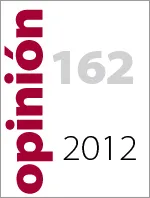Obama vs. Romney: The World Seen from Boca Raton

Francesc Badia i Dalmases,
CIDOB
25 October 2012 / Opinión CIDOB, n.º 162 / E-ISSN 2014-0843
The United States continues to see itself as the "indispensable power." Obama, the Commander-in-Chief, said as much in the third and last electoral debate on Monday, October 22, in Boca Raton, Florida. Mitt Romney, who aspires to seize this position from him, could not agree more. The fact that they devoted one of the three electoral face-offs to the topic says a lot about its central importance for the American electorate. But to see the debate as a contrast between two general views of North American foreign policy for the next four years would be a misreading.
What we saw on television was a discussion, in a purely domestic key, about leadership, which is what is at stake for the next four years. Who will be better able to continue to project an image of hegemonic world power both at home and abroad? What really matters in these elections is not what ends up happening in Kandahar, but how people will vote in Florida. And the candidates devoted all their efforts to presenting a convincing argument to the Floridian voters.
In the second half of the 20th Century, the foundation for North American world leadership was its military hegemony (as Obama stated, his defense budget was greater than those of the next ten most militarized countries together, including Russia, China, the United Kingdom, or France). Hence, the next North American President has to be perceived by his fellow citizens as a sheriff, tough but well-intentioned, a world gendarme who is there to defend his people and their economic interests wherever it be necessary, but always with the safeguard of the fundamental narrative of the values of the founding fathers (liberty, justice, democracy).
For the European observer it is surprising to note that the interventionist view of U.S. foreign policy has not undergone the most minimal variation in these last years of disastrous wars: they continue to sell themselves to one another as the bearers of "good" against "evil", and as the guarantors, even today, of world security. It is true that the American foreign agenda has shifted, and that there are nuances between the two candidates, but what is beyond discussion is the firm intent to continue leading the world.
In a domestic electoral key, the argument is that the new President of the United States must not only be a great leader of his citizens, but a great incontestable world leader. On this point there is total agreement between Democrats and Republicans: the great power of the 20th century intends to continue playing this role in the 21st. The discourse of both is very clear: to continue in command of the world they must continue to be the first economic power on the planet. Where they differ is in the formula for achieving this.
The Democratic recipe for global leadership: the defense budget must respond more to the needs of the generals and less to the interests of the shipbuilding lobby. Investment in education and research must be increased significantly (an exotic notion from the perspective of the Europe of austerity and cutbacks) because that will make the United States more competitive, a leader in technology, capable of bringing jobs home to Detroit. For Obama, reduction to a minimum of troops abroad and the use of drones will save money for investment in teachers, infrastructures, renewable energy, and aid programs for veterans. Too much has been spent in Afghanistan, and too little in Mississippi.
For Governor Romney, the objective is identical--to lead the world--but the recipe is different. At times the debate was embarrassing, as the Republican candidate repeated faithfully and without nuance the diagnoses of the President, demonstrating that in truth he offers no alternative. Where change can be seen, in each case, is in the Republican's need to appear in the eyes of his voters to be more belligerent, quicker on the draw, more ready to lower taxes, increase the military budget, and build as many ships as necessary. At this point, with a slip-up about ships, the candidate was thrown on the defensive. We only have 284 warships and the Navy needs 313 to continue patrolling the globe, said Romney. Obama sensed his golden opportunity and sent a torpedo straight for the waterline: this is a perfect example of the way in which the governor doesn't know the facts: this is the same as saying we need more horses and more bayonets.
If anything seemed clear, it was that the fundamental issue, as James Baker stressed the following day at the Wilson Center in Washington, is none other than to decide what role the U.S., as a global leader, ought to play in the world. "Our strength abroad depends on how strong we are at home." The Democrats in the room could not agree more.
The radical changes in the world over the last twenty years, the substantially different geo-economic panorama defined by the 'raise of the rest', and the existence of new geo-strategic challenges that will condition future security policy were all questions that remained under the radar in Boca Raton. The issues that were dealt with, such as the relationship with Israel, the Mediterranean transitions, Libya, Syria, and, above all, the Iranian nuclear question, were all seen in the light of domestic policy.
No matter how much the debate was purported to be about international policy, the topic, in fact, was domestic policy. It was not by chance, for example, that there was no mention of the work of Mme. Hillary Clinton, the Secretary of State. Nor was there a word about Europe. Not one. This was not the topic at hand.
Francesc Badia i Dalmases,
CIDOB